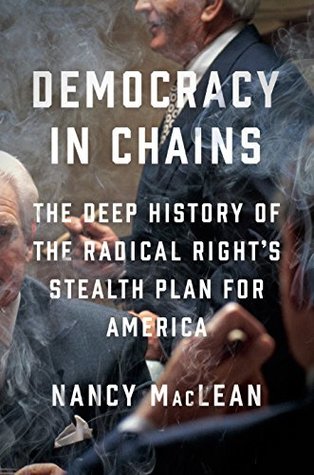He blamed the Great Depression for the rise of unacceptable intrusions on liberty; it had ended what he called the “fortuitous circumstances” that had produced a sixty-year reign of economic freedom, between the end of Reconstruction and the Great Depression. At no point did he address the possibility that if economic inequality had not been so extreme in that era and if the stock market had been regulated, the Depression might not have been so devastating.
Welcome back. Just a moment while we sign you in to your Goodreads account.


